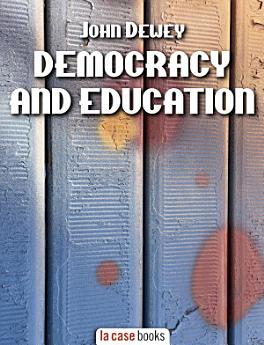Democracy and Education
এই ইবুকখনৰ বিষয়ে
As such utilitarian subject matter is increasingly placed online, isolating individual students and their electronic screens, he insists that education happens not through direct instruction but “indirectly by means of the environment” where members of a community engage in meaningful tasks. As the American population appears increasingly subject to rhetorical manipulation and ideological extremism, Dewey imagines the possibility of education cultivating “habits of mind which secure social changes without introducing disorder.”
Insightful and inspiring, Dewey’s classic reintroduces readers to educational and political possibilities hard to remember as political and corporate forces to work reshape American public schools in the service of global profit rather than democratic life.







